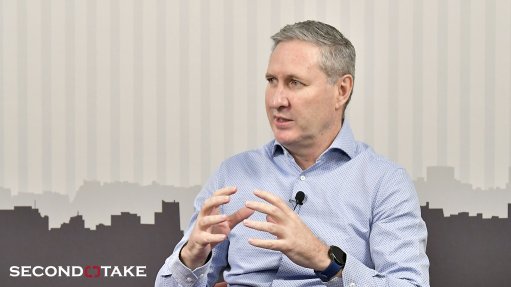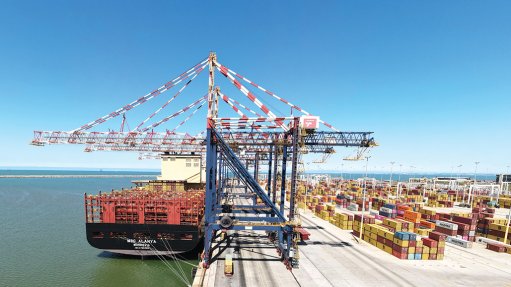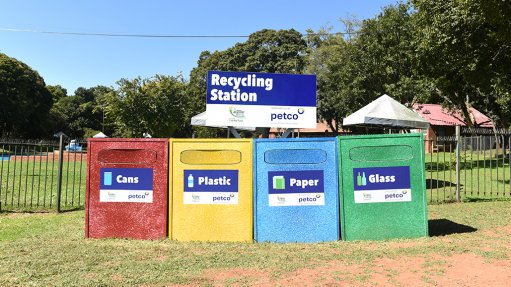Water is on track to be our next crisis: The current state of waste water treatment in South Africa and proactive biotechnological Solutions
This article has been supplied as a media statement and is not written by Creamer Media. It may be available only for a limited time on this website.
By D. Dickson – MSc Bioprocess Engineering (UCT) Head Water & Sanitation AUS
Water security is a looming issue in South Africa, as the country faces persistent challenges in ensuring the availability, accessibility, and sustainability of water resources. With a rapidly growing population, increasing demand for water in agriculture, industry, urban areas as well as the impacts of climate change, South Africa must find innovative solutions to maintain and improve its water security.
The majority of wastewater treatment in South Africa is inadequate, especially in rural and informal settlements. Wastewater is often discharged into the environment without treatment, leading to contamination of water resources, soil and food, deteriorating public health and the environment. This is due to over capacitated plants, ageing infrastructure and maintenance, as well as limited technical capacity to operate and maintain effective treatment systems. Overall, the state of wastewater treatment in South Africa reflects the broader challenges facing the country in terms of access to basic services and infrastructure, as well as the need for continued investment and innovation to solve these issues.Bottom of Form
In this feature, I will share our current waste water challenges and the role of biotechnology in addressing them.
One of my first exposures to wastewater treatment came from an unlikely source. Hartbeespoort dam. The dam is primarily used for irrigation and is in a hypertrophic state due to declining water quality upstream, most small-scale farmers do not have the means to afford treating their water before use. Aquatic dam weeds multiply rapidly in a constant supply of nutrients, both from urban effluent and decaying biomass underneath, while river ecosystems deteriorate. Over 60% of South Africa’s waste water treatment works have been classified “poor to critical” according to the Green Drop 2022 report.
This is evident from recent water quality analyses and reports from Durban, Tshwane and Cape Town, in which ageing infrastructure is not keeping up to development and the growing numbers of people having access to basic sanitation. Plants are subject to effluent quality national standards and municipal by-laws, which are rarely monitored and enforced. Reactive infrastructure upgrades take years while these plants continue to offload non-compliant or untreated effluent into our riverways and beaches, exacerbated by flooding and loadshedding. In some cases, the effluent flows back to dams where water purification works are equally dysfunctional, as in the case of Hammanskraal.
Water quality is of equal importance to water quantity, the 2030 Water Resources Group has calculated that by 2030, the demand for water in South Africa will exceed supply by 17%, in a country that receives less than half the average level of global rainfall. There are solutions to address these challenges head on, the first being enzyme biotechnology. Enzymes are an innovative, effective technology that are rapid to deploy and cost effective, augmenting natural reactions in the plant. Our projects in South Africa have shown; not just that it delivers improvements to the performance of over capacitated plants, but that general limit compliance can be achieved and exceeded.
- Costings for remediation range between 15% - 40% of the capital cost required in new build infrastructure projects and is faster to deploy as refurbishments can take months to complete.
- The solution has not only proved to be cost effective, but is also a direct change mechanism to reinstate the compliance in effluent throughout the country.
- Enzymes can unblock treatment units and pipes at hydraulically overloaded plants in as little as 48hrs, many of these units are currently bypassed. The knock-on effects of maximum digestion being significantly reduced odour, lower power consumption, less mechanical stress and therefore reduced maintenance costs. Organic material is still digested during loadshedding.
- Provides a eutrophication solution for large water bodies like Hartebeespoort dam.
- Vip pit toilets and septic tanks can be remediated, providing a better and safer quality of life for rural communities, townships and especially schools.
We at Africa Utility Solutions are well aware of our water challenges and providing solutions have been the focus of our company. We have a pure enzyme product to enable a more conducive environment for natural microbiomes to flourish and have completed several projects successfully with our biotechnology solution platform. Results have been documented and achieved, which proves that our biotechnology is effective, not just in improving performance, but also in achieving general limit compliance at plants that have not been compliant for over 10 years. Other offerings in our portfolio include water re-use strategies, such as our onsite waste water treatment and recycling unit and smart water meters for smart water management and revenue collection. This frees up capacity in water-wastewater networks, allowing development to continue without requiring local government to spend billions of Rands on infrastructure upgrades, reducing the burden on our natural resources and maximising our water availability factor.
Ultimately we are a proactive company, with a vision of our people and our children having a more hopeful future. Reach out to us to expand on our success stories, products and services and to assist your organisation to raise its sustainability profile.
Comments
Press Office
Announcements
What's On
Subscribe to improve your user experience...
Option 1 (equivalent of R125 a month):
Receive a weekly copy of Creamer Media's Engineering News & Mining Weekly magazine
(print copy for those in South Africa and e-magazine for those outside of South Africa)
Receive daily email newsletters
Access to full search results
Access archive of magazine back copies
Access to Projects in Progress
Access to ONE Research Report of your choice in PDF format
Option 2 (equivalent of R375 a month):
All benefits from Option 1
PLUS
Access to Creamer Media's Research Channel Africa for ALL Research Reports, in PDF format, on various industrial and mining sectors
including Electricity; Water; Energy Transition; Hydrogen; Roads, Rail and Ports; Coal; Gold; Platinum; Battery Metals; etc.
Already a subscriber?
Forgotten your password?
Receive weekly copy of Creamer Media's Engineering News & Mining Weekly magazine (print copy for those in South Africa and e-magazine for those outside of South Africa)
➕
Recieve daily email newsletters
➕
Access to full search results
➕
Access archive of magazine back copies
➕
Access to Projects in Progress
➕
Access to ONE Research Report of your choice in PDF format
RESEARCH CHANNEL AFRICA
R4500 (equivalent of R375 a month)
SUBSCRIBEAll benefits from Option 1
➕
Access to Creamer Media's Research Channel Africa for ALL Research Reports on various industrial and mining sectors, in PDF format, including on:
Electricity
➕
Water
➕
Energy Transition
➕
Hydrogen
➕
Roads, Rail and Ports
➕
Coal
➕
Gold
➕
Platinum
➕
Battery Metals
➕
etc.
Receive all benefits from Option 1 or Option 2 delivered to numerous people at your company
➕
Multiple User names and Passwords for simultaneous log-ins
➕
Intranet integration access to all in your organisation


















